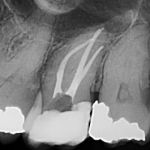How to Deal with Oral Health Issues During Pregnancy
- Understanding Oral Health During Pregnancy
- Common Oral Health Issues During Pregnancy
- How Pregnancy Affects Dental Health
- Prevention and Care for Oral Health During Pregnancy
- Safe Dental Treatments During Pregnancy
- Personal Experience and Stories
- How to Maintain Good Oral Hygiene During Pregnancy
- When to Visit a Dentist During Pregnancy
Understanding Oral Health During Pregnancy
When you're pregnant, it's not just your body that goes through changes—your oral health is affected too. I learned this first-hand during my pregnancy when I noticed some unusual gum sensitivity and bleeding, things I hadn't experienced before. Pregnant women are at a higher risk of oral health issues like gum disease, tooth decay, and even tooth loss, which can affect both your comfort and overall well-being. But there’s good news: with proper care and attention, most of these issues are preventable or manageable.
Oral health issues during pregnancy are more common than most people realize, and many women experience symptoms due to hormonal fluctuations. These changes can make your gums more sensitive, and bacteria in the mouth can cause more inflammation. This is why it's important to pay special attention to your oral hygiene, especially during this time. Not only does it ensure a healthy mouth, but it also contributes to your overall health and can even impact the health of your baby.
Common Oral Health Issues During Pregnancy
Pregnancy can bring about a variety of oral health issues. These are some of the most common ones I encountered and learned about from my dentist during my pregnancy:
1. Gingivitis
Gingivitis, or inflammation of the gums, is common during pregnancy. It happens when the gums become more sensitive due to hormonal changes, making it easier for plaque to build up and irritate the gums. I noticed that my gums became swollen and bled a bit more than usual when brushing. My dentist explained that this is a normal pregnancy symptom called "pregnancy gingivitis," but it can be managed with good oral hygiene and regular dental check-ups.
2. Pregnancy Tumors
Pregnancy tumors are non-cancerous growths that can develop on the gums during pregnancy. While they can sound alarming, they’re usually harmless. I learned that these growths are usually caused by hormonal changes and often go away on their own after pregnancy. In my case, they were a bit uncomfortable, but my dentist reassured me that they would likely disappear after delivery.
3. Tooth Sensitivity and Tooth Decay
During pregnancy, your body’s calcium levels can be altered, which may increase the risk of tooth sensitivity and tooth decay. I experienced some increased sensitivity to hot and cold foods, which was a bit concerning at first. My dentist explained that pregnancy can change the pH balance in your mouth, making it easier for cavities to form. Brushing regularly with fluoride toothpaste helped alleviate some of the discomfort, and I was more mindful of my diet to prevent any cavities.
4. Morning Sickness and Acid Erosion
Morning sickness, which affects many pregnant women, can lead to acid erosion of the teeth. Vomiting from nausea during pregnancy introduces stomach acids into the mouth, which can wear away tooth enamel. I had to deal with morning sickness in my first trimester, and I was advised to rinse my mouth with water or fluoride mouthwash after vomiting to protect my teeth. It was important to wait about 30 minutes before brushing, as brushing too soon can spread the acids on the teeth.
How Pregnancy Affects Dental Health
The hormonal changes that occur during pregnancy, particularly the increase in progesterone and estrogen, can affect your oral health in several ways. These hormones can cause the gums to become more sensitive, leading to inflammation and increased susceptibility to infections. I realized that the small changes in my gums were directly linked to my body’s hormonal shifts. This hormonal fluctuation is one of the main reasons why pregnant women are at a higher risk of developing gum disease, which, if left untreated, can have negative effects on both oral and overall health.
During pregnancy, your immune system is also slightly weakened to accommodate the growing baby, making it harder for your body to fight off oral infections. This is why it's crucial to maintain good oral hygiene and see a dentist regularly during pregnancy. In my case, I made sure to stay on top of my dental care routine to avoid any serious complications.
Prevention and Care for Oral Health During Pregnancy
Preventing oral health issues during pregnancy is all about maintaining a consistent and thorough oral hygiene routine. Here’s what worked for me, and what I recommend to anyone who’s pregnant:
1. Brush and Floss Regularly
Brushing your teeth at least twice a day and flossing daily are essential steps in preventing oral health problems. I found that using a soft-bristled toothbrush was the best option during pregnancy since my gums were more sensitive. Using fluoride toothpaste helps to prevent cavities, and flossing daily removes plaque between the teeth, where a toothbrush might not reach.
2. Use Mouthwash
In addition to brushing and flossing, using an alcohol-free mouthwash helped to reduce bacteria and freshen my breath. Mouthwash can also be beneficial in treating gingivitis by helping to reduce gum inflammation. My dentist recommended a fluoride mouthwash, which was gentle on my gums and helped to prevent cavities, especially since I had to be cautious with any additional products during pregnancy.
3. Regular Dental Check-ups
Scheduling regular dental check-ups during pregnancy is crucial for staying on top of any potential oral health issues. I continued with my regular visits to the dentist, and I made sure to inform them about my pregnancy, so they could take extra precautions when performing any procedures. Professional cleanings can help prevent plaque buildup and keep your gums healthy.
4. Maintain a Balanced Diet
A balanced diet rich in vitamins and minerals, particularly calcium, is important for both your health and your baby’s development. I made sure to include calcium-rich foods, such as dairy products and leafy greens, to keep my teeth strong and healthy. Additionally, I avoided sugary snacks, which can contribute to tooth decay, and drank plenty of water throughout the day to keep my mouth hydrated.
Safe Dental Treatments During Pregnancy
Many women wonder whether it’s safe to undergo dental treatments while pregnant. The good news is that most dental treatments are safe during pregnancy, especially if performed by an experienced dentist. I was concerned about getting any dental work done during my pregnancy, but my dentist reassured me that procedures like cleanings, fillings, and even dental X-rays are generally safe if proper precautions are taken.
However, it’s important to avoid elective treatments, like teeth whitening, during pregnancy. These procedures often use chemicals that aren’t fully studied for safety during pregnancy. I also learned that the second trimester is the safest time to receive dental treatments, as it’s less risky than the first trimester, when the baby’s organs are still developing, or the third trimester, when lying back in the dentist’s chair can be uncomfortable.
Personal Experience and Stories
During my pregnancy, I experienced some common oral health issues, like swollen gums and occasional bleeding. These symptoms were alarming at first, but after visiting my dentist and learning about the changes that occur during pregnancy, I felt much more at ease. My dentist was incredibly supportive, offering advice on how to care for my teeth and gums effectively while pregnant. It was comforting to know that with the right care, I could avoid more serious issues like gum disease or tooth loss.
One friend of mine had a more severe case of pregnancy gingivitis and had to undergo a deeper cleaning procedure. While she was nervous at first, she was happy with the results afterward and felt much more comfortable with her oral health throughout her pregnancy.
How to Maintain Good Oral Hygiene During Pregnancy
Maintaining good oral hygiene during pregnancy is not just about brushing and flossing—it’s about consistency and making the right choices for your health. Here’s a recap of what worked for me:
1. Stick to a Routine
Having a consistent oral hygiene routine during pregnancy is key. I made sure to brush, floss, and rinse daily to keep plaque at bay. This routine helped me maintain a healthy smile and prevent problems like gingivitis or cavities.
2. Avoid Harmful Habits
Avoid smoking and excessive snacking on sugary foods, as these can contribute to tooth decay and gum issues. I found that cutting back on sugar, especially during my pregnancy cravings, helped me avoid potential dental problems.
When to Visit a Dentist During Pregnancy
It’s important to visit your dentist regularly during pregnancy, especially if you notice any issues like bleeding gums, tooth sensitivity, or discomfort. If you experience more severe symptoms, like swollen gums or pain, it’s crucial to consult your dentist right away. Regular visits can help catch any problems early on and ensure your oral health is in good shape throughout your pregnancy.







 Aspen Dental - Plymouth, MA4.0 (306 review)
Aspen Dental - Plymouth, MA4.0 (306 review) North Penn Endodontics Group4.0 (87 review)
North Penn Endodontics Group4.0 (87 review) Dental Bright advanced family dentistry & orthodontics4.0 (69 review)
Dental Bright advanced family dentistry & orthodontics4.0 (69 review) aspen dental, Kevin D. Oh, LLC2.0 (8 review)
aspen dental, Kevin D. Oh, LLC2.0 (8 review) Grady Dental Care5.0 (281 review)
Grady Dental Care5.0 (281 review) Aspen Dental - Glendale, AZ4.0 (602 review)
Aspen Dental - Glendale, AZ4.0 (602 review) The Importance of Oral Health Education During Pregnancy for a Healthy Pregnancy
The Importance of Oral Health Education During Pregnancy for a Healthy Pregnancy Best Tips for Brushing Your Teeth Properly for Healthy Gums: Essential Techniques for Oral Health
Best Tips for Brushing Your Teeth Properly for Healthy Gums: Essential Techniques for Oral Health Why Skipping Dental Checkups Can Lead to Bigger Oral Health Problems
Why Skipping Dental Checkups Can Lead to Bigger Oral Health Problems Advantages of Porcelain Dental Restorations
Advantages of Porcelain Dental Restorations How Can Diabetes Cause Tooth and Gum Problems? Preventing and Managing Oral Health Issues
How Can Diabetes Cause Tooth and Gum Problems? Preventing and Managing Oral Health Issues Healthy Habits for Promoting Good Oral Health and Hygiene: Tips for a Healthy Smile
Healthy Habits for Promoting Good Oral Health and Hygiene: Tips for a Healthy Smile